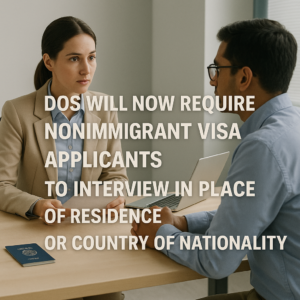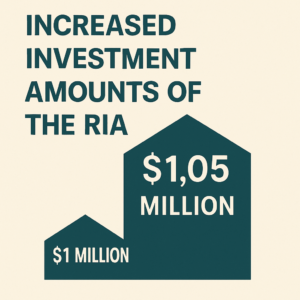 In a new policy memorandum issued by the United States Citizenship and Immigration Services (USCIS) last July 13, 2018, USCIS adjudicators are given discretion to deny applications, petitions, or requests without first issuing a Request for Evidence (RFE) or Notice of Intent to Deny (NOID) if the initial evidence is not submitted or if the evidence in the record does not establish eligibility. The policy is to take effect on September 11, 2018 and applies to all applications, petitions, and requests received after said date.
In a new policy memorandum issued by the United States Citizenship and Immigration Services (USCIS) last July 13, 2018, USCIS adjudicators are given discretion to deny applications, petitions, or requests without first issuing a Request for Evidence (RFE) or Notice of Intent to Deny (NOID) if the initial evidence is not submitted or if the evidence in the record does not establish eligibility. The policy is to take effect on September 11, 2018 and applies to all applications, petitions, and requests received after said date.
The new policy memorandum departs from (and rescinds) a policy memorandum from June 3, 2013 which stated that adjudicators should issue an RFE unless there was “no possibility” that the deficiency in the application, petition, or request could be cured by the submission of additional evidence. Under the June 3, 2013 memorandum, denials issued without an RFE or a NOID were only issued for statutory denials such as if the applicant, petitioner or requestor has no legal basis for the benefit that they are applying, petitioning, or requesting for or if the benefit or relief requested is under a program that has been terminated.
With the rescission of the “no possibility” policy, the memorandum means that, aside from statutory denials, USCIS may also deny applications, petitions and requests without issuing an RFE or a NOID if not all the required evidence is submitted with the benefit request. Said denial will be based on lack of required initial evidence. Examples of cases where there may be a denial without issuing an RFE or a NOID include, but are not limited to:
- Waiver applications submitted with little to no supporting evidence; or
- Cases where the regulations, the statute, or form instructions require the submission of an official document or other form or evidence establishing eligibility at the time of filing and there is no submission. For example, family-based or employment-based categories where an Affidavit of Support (Form I-864), if required, was not submitted with the Application to Register Permanent Residence or Adjust Status (Form I-485).
The policy is intended to discourage frivolous or substantially incomplete filings and to encourage applicants, petitioners, and requestors for U.S. visas for overseas education and green cards to be diligent in collecting and submitting required evidence.








